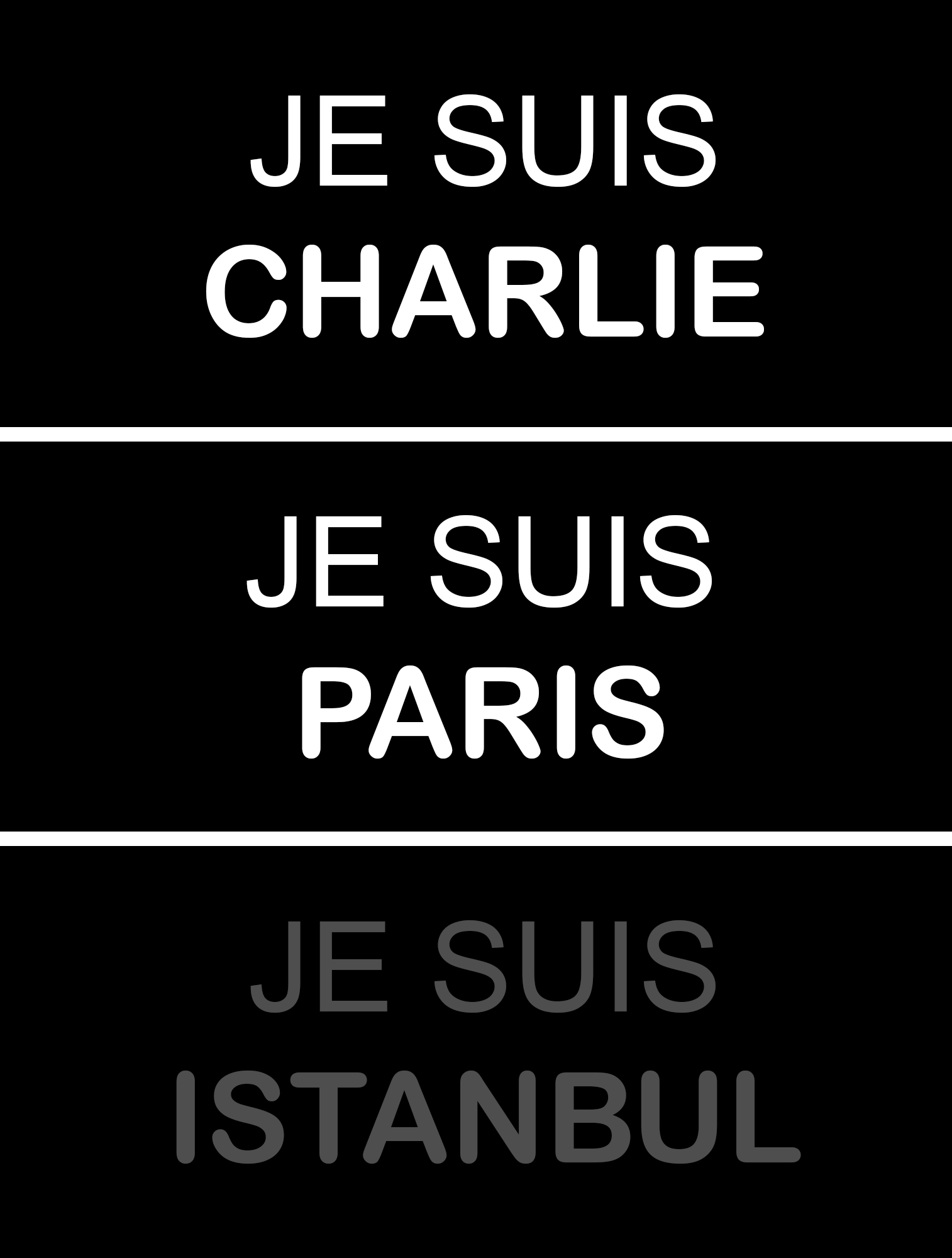Are Middle Eastern lives worthless in the eyes of the Western world?
On New Year’s Day, 2017, a gunman entered a nightclub in Istanbul’s Beşiktaş district. Seven minutes later, 39 people lay dead and the attacker escaped into the crowd.
I learned of this attack through Twitter. However, I was hard pressed to find any other concrete information from major news sources. A Canadian even died in this ISIS attack and yet barely a passing glance was made.
Why is this? Why is an attack in Paris “an attack on all humanity,” as President Obama called it, while attacks in non-Western nations barely make it out of the newsroom? The answer is complex.
One could assume that Turkey, a country seen as a nexus between the East and West, perhaps shares the perceived characteristic violent connotations of its Middle Eastern neighbours. This, I think, is only half right. It is certainly true that Turkey has a history of terror attacks—primarily from Kurdish rebel forces—an ethnic minority who’ve been pushing for cultural and territorial independence for decades.
ISIS has recently been wreaking havoc across the nation, as the Syrian civil war spills across the border, with 415 Turkish civilians and soldiers having been killed since June 2015, according to The New York Times.
Yet, Turkey is also considered by many to be a “Westernized nation,” the strongest member of NATO next to the U.S. and a secular democracy. So why aren’t acts of terror in Turkey and other non-Western nations treated like world-shaking events as they are in Paris, Brussels or Berlin?
As Molly Crabapple of The Guardian wrote, the West is conditioned to perceive Middle Eastern lives are “cheap.” To a certain extent, I am inclined to agree with this perspective. For instance, on November 12, 2015, two suicide bombers killed 42 people in a Beirut market. This attack was reported by western media but focused on the fact it was an “explosion in a Hezbollah stronghold,” rather than an ISIS attack against innocent civilians, according to The New York Times.
Presenting this attack and countless others in the Middle East as routine incidents of sectarian violence has the effect of normalizing violence in that region rather than showing us what it truly is: a robbery of innocent lives that is worthy of our attention.
However, the responsibility for this normalization is not solely at the feet of the mass media—the public plays a part in effacing the significance of these attacks. Social media is a perfect example of such a disparity in empathy. The Charlie Hebdo and Bataclan attacks in Paris in 2015 both elicited mass public outcry.
This sympathy manifested itself in the hashtags #jesuischarlie and #jesuisparis. In addition, attacks in Brussels and Berlin in 2016 garnered similar responses. But where was the outcry and mass public support following terrorist attacks in Nigeria, Turkey, Lebanon and Iraq, many of which occurred within weeks or days of the Parisian and Belgian attacks?
I asked this exact question on social media—Facebook specifically. What was surprising to me is the fact that all of respondents acknowledged the lack of media and public sympathy for non-Western victims of terror. They almost unanimously felt the reason for the lack of empathy was that they could see parts of themselves in Western nations but not in others.
For example, Paris is iconic and romanticized in the West. One respondent said she could imagine herself at the Bataclan the night it was attacked, in much the same way she could see herself at the Metropolis here in Montreal. But why doesn’t the New Year’s attack at an Istanbul nightclub elicit a similar response? Surely Turkish people enjoy music, friends and life just as much as Parisians and Montrealers.
The reasons behind such a lack of empathy are many and hard to capture in an article of this length. However, I believe that thinking about these questions is a good exercise for broadening our worldview and opening our hearts and minds beyond what is familiar and comfortable to us. In other words, this an opportunity to cultivate a sense of empathy for those deemed different from us.
With ISIS committing atrocities on what seems like a weekly basis, lack of empathy and a belief that violence in the Middle East is “just how things are over there” are a threat to the values we claim to hold and the lives of those fleeing places like Syria and Iraq. Such beliefs only feed the rhetoric which equates Muslims with terrorism. We owe it to ourselves and our fellow human beings to be cognizant of such gaps in our empathetic compass, and to directly address these issues. If not, how can we truly deny that we consider Middle Eastern lives “cheaper” than our own?
Graphic by Florence Yee




